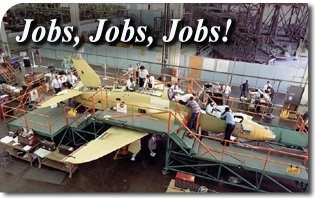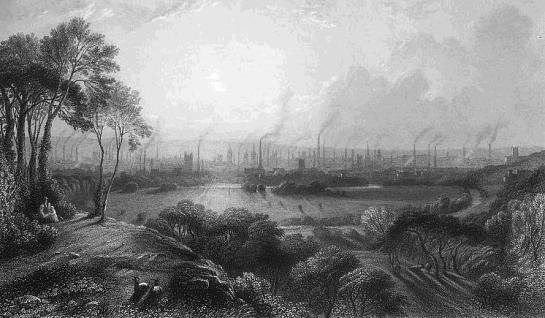 Today, jobs are all the rage. Everyone is talking about jobs and how to create them. Jobs for workers, students, veterans and older people. It is the mania of jobs, jobs, jobs! It does not seem to matter what the jobs are and how they are created. The most important thing is that they be created almost ex nihil to prime, jump-start or hot-wire the economy back to prosperity.
Today, jobs are all the rage. Everyone is talking about jobs and how to create them. Jobs for workers, students, veterans and older people. It is the mania of jobs, jobs, jobs! It does not seem to matter what the jobs are and how they are created. The most important thing is that they be created almost ex nihil to prime, jump-start or hot-wire the economy back to prosperity.
As wonderful as it would be to have all these jobs, there is something inhuman and mechanical in all this talk. It is as if a job is a mere commodity like gasoline that can be indiscriminately moved from one place to another. It is as if men were measured units to be plugged in at will into government statistical charts.
The fact is that all jobs are not created equal. Indeed, to employ a man only because he needs a job is to assure him that he is useless. It is to “make work,” to fill his time with superfluous tasks that vanish as soon as projects cease. On the contrary, to hire a man because a job needs him is to assure him of his dignity. He is wanted; the job sustains itself well beyond the time of hiring.
Some common sense needs to enter into the jobs debate. For this to happen, we need to rid ourselves of the notion that a job is just a commodity.
This is not an easy task since this concept has long been a fixture in our modern age. We find it on all sectors of the political and economic spectrum. It harkens back to the industrialization of society. Huge factories uprooted people from the countryside and integrated them into the rhythm of their machines that flooded the world with their mass production.

From that time on, we started thinking mechanically in terms of jobs as commodities. Economists started treating the economy like a huge machine that they thought they could tweak and adjust to do their bidding. And in this massive machine, each worker is but a unit of labor that is part of the formula of productivity.
According to this doctrine, it should be easy to create jobs. By mechanically adjusting the economic machine, we can create as many jobs as needed since they are mere containers of labor that can be mass produced like needles and paperclips.
And yet the contrary is true.
If the present efforts to create jobs have proven anything, it is that jobs cannot be created by simply pumping money into our massive economic machine. The outrageous ratios of money spent per job created shows just how artificial these efforts are. When government is engaged om stimulating economy, it often end up in unneeded earmarked “bridges to nowhere” which do little to help long term growth.
There are other factors that enter into creating jobs beyond the gross simplifications of modern economists. We see intangible human factors like confidence, uncertainty, loyalty or optimism. We also see the feverish passions of countless manias, frenzies, panics and mad rushes that show just how human and how irregular this economic “machine” really is.
In other words, we are led to proclaim the “heresy” that our massive economy is not a Keynesian machine. Real economy depends upon organic human relationships that cannot be engineered and programmed.
When we reduce a job to a mere unit of labor, we separate it from that which is human and social. We reduce it to a sterile commercial link detached from real life. Work becomes a matter of indifference which one does because there is nothing else. It becomes what economists call a “disutility,” where we endure the pains of labor so that we might later enjoy the pleasures of money and fun.
To create meaningful and lasting jobs, we must cultivate a proper moral climate. We must have what sociologists call social capital, those social networks of shared norms and values that create the conditions of trust which enrich social, civic and economic life.
When this trust is gone – and we do not hesitate to affirm that it is disappearing – the foundation for commerce and economy are threatened and the general well-being of society is lost.
When this social capital is present, it encourages confidence and stability. Labor is once again tied to reciprocal social relationships where there is loyalty and cooperation between employer and employee. Work becomes something that builds character and has intrinsic meaning and purpose by contributing to the common good and the community at large. A job is not just a way of filling one’s time but a calling, profession or even a vocation.
Indeed, our prosperity has always depended upon this social capital that provides the ideal moral climate for jobs. This perception is what is missing in today’s jobs debate. It is much more important to recreate the moral climate that makes jobs than simply pump money into what we imagine to be an economic “machine” that refuses to be jump-started. However, until we quit the mania of thinking of jobs in terms of a commodity, we will not see meaningful and lasting employment. Until then, we will keep hearing the empty cry of jobs, jobs, jobs.

